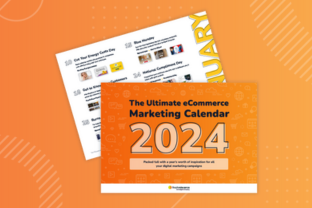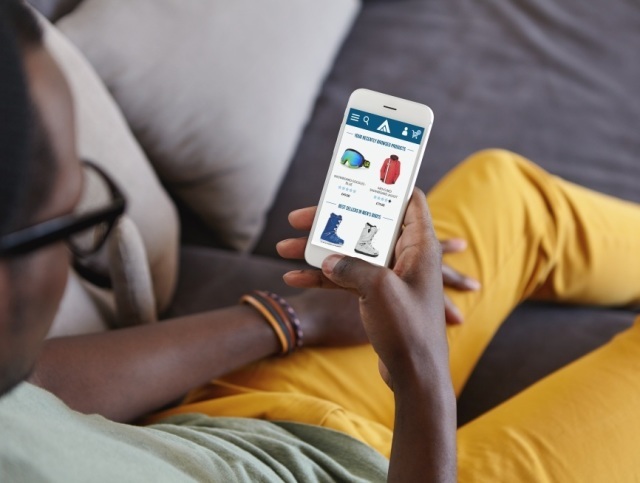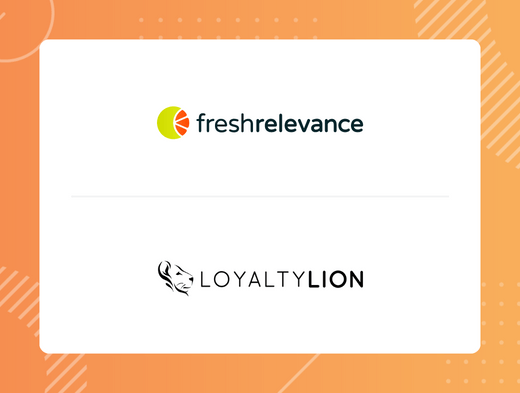At Fresh Fest this year, we spoke about what lies ahead for eCommerce in the year ahead. Here is a breakdown of 3 key factors for running a successful eCommerce business in 2021.
The pandemic has affected everyone in different ways – including eCommerce businesses. Customers are more likely to buy their products online now, but there is a lot more competition out there, making customer retention more important than ever.
Plus, with pandemic-induced budget cuts and reduced staff numbers across eCommerce businesses, boosting efficiency and collaborating across teams is vital.
And with the ‘cookie apocalypse’ on the horizon, it is important your business is future-proof.
Here are three steps to take that will help ensure your business is safe and successful.
1. Customer retention in the face of ever-increasing competition
The amount of competitors in the eCommerce industry is at an all time high. Not only that, the pandemic also changed the online landscape, shaking up customer loyalty as we know it. Research from McKinsey shows that 75% of customers tried new brands in 2020 and 40% changed the brand they were using. It is therefore vital for your business to retain customers.
So how do you keep customers loyal? We recently worked with Censuswide and polled 2000 nationally representative consumers in the UK to find out exactly that. Read on to discover our three Cs of customer loyalty.
Convenience
It is vital that your website experience is easy to navigate and relevant to each specific customer when they are browsing. 26% of customers report that a frustrating website experience hurts their opinion of the overall brand.
By using dynamic content, you can negate this issue. You can, for example, use product recommendations and banners specifically targeted to each customer visiting your website, or show countdown timers to highlight deadlines for specific sales. Making it easy for your customers to find what they are looking for will encourage them to keep them coming back.
Communication
Being transparent, open and honest with your customers will foster a loyal relationship with them. 39% of customers want to have control over the type and frequency of emails they receive. Respecting customers, their choices and their data will help build that trust.
25% of customers won’t buy again if they receive daily emails with irrelevant information, so make sure you use contextual and behavioral data to make any communication relevant to them.
Customer Incentives
Prove to your customer you value them by using incentives. For example, 28% of 16-24 year olds and 33% of over 55 year olds want early access to sales or limited editions, so make sure you use the right incentives to the right customers.
Use segmentation to your advantage. By creating a segment of loyal customers, you can reward them with the right offers. For lapsed customers, try including a coupon to encourage them to come back and buy from you again.
Learn more about boosting loyalty with three Cs here: The three Cs of customer loyalty – Fresh Relevance loyalty report.
2. Responding to headcount and budget cuts through increased collaboration
The pandemic sent shockwaves through retail in 2020, with 176,718 retail jobs lost and -10.2% of global spend on advertising year on year. With all these cuts, it has become clear that marketing teams have had to become creative, and that companies cannot work in silos. Collaborating with other parts of the company has become more important than ever, as data- and knowledge-sharing can be that crucial step to understanding what customers need and want, and how to deliver that for them.
For example, one opportunity for collaboration can be through product recommendations. Marketing can use new arrivals or trending products to acquire new customers, whilst eCommerce can look at the impact of recommendations on overall conversions. They can also look at marketing segments, and should seek to understand CLV alongside conversion data. In the meantime, merchandising should have the ability to override the AI or machine learning systems when necessary, for instance when there are changes in stock. They should also know how to highlight certain products. Finally, CRM can then target existing customers and foster loyalty with recommendations that are more based on past transactions.
For this collaboration to be most effective and efficient, companies should seek to work together using a single platform.
Learn more about increasing efficiency in your business in our dedicated guide: Increasing efficiency in ecommerce.
3. Personalization in the wake of the cookie apocalypse
With the new GDPR and CCPA rules surrounding privacy, leading browsers have been restricting and blocking the use of cookies. A staggering 43% of companies say they’re not ready for the “cookie apocalypse”, but with Chrome’s plans to block third-party cookies completely in 2022, it is crucial to future-proof your martech solutions.
With this in mind, there are three things to consider when choosing a future-proof personalization platform:
- The types of cookies they use to collect data, to see if they will survive the “cookie apocalypse” by using first- and zero-party data
- Whether they use personalization or personification to target customers, or whether they use a hybrid approach to ensure the experience is tailored for all visitors
- Whether they use client-side testing or server-side testing or a hybrid approach to make sure the website runs smoothly and the testing is flexible
How we can help
At Fresh Relevance, we want you and your business to succeed. We can help you build convenient customer experiences and personalize content for specific individual customers to drive customer loyalty. We respect customers’ demands for more choice, transparency and control over their data – we are a future-proof marketing tech solution that runs on transparent data sources.
Finally, we encourage you to break down silos between teams to increase efficiency. Using our platform, we can empower you to collaborate across teams on personalized customer journeys that enhance the customer experience and boost conversion rates.
Want to see more from Fresh Fest? You can still watch it back here.







